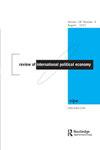Hybrid governance of joint ventures in transitional economies: the case of Guangzhou Automobile Group in China
IF 3.7
1区 经济学
Q1 ECONOMICS
引用次数: 4
Abstract
Abstract The conventional approach to examining firm-to-firm governance is unable to disentangle the complexity of strategies and the interplay between different actors with their corresponding rules and routines embedded within an institutional environment where the state plays as a key equity partner in joint ventures (JVs) in transitional economies. This paper proposes an analytical framework of hybrid governance to explain how an alignment of mutual interests between three groups of heterogeneous multi-scalar actors (states, local and foreign firms) facilitates technological upgrading in JVs and the establishment of local production networks in transitional economies. The case of Guangzhou Automobile Group (GAC) demonstrates how the divergent interests of various actors do not necessarily constrain the development of the JV. Under such hybrid governance, whereby the boundaries between public and private property are blurred, GAC’s senior managers have been able to navigate and align the multifaceted agendas of various actors: from the profit-maximization demanded by foreign JV partners and industrial development commanded by the central state, to the development of the local capacity and capability for large-scale production and product development and setting up local automotive supply chains required by the local state. Three necessary conditions for technological upgrading in JVs are identified: a 50-50 equity structure, a latecomer in a big market, and the financial imperative of local firm actors.转轨经济下合资企业的混合治理:以广州汽车集团为例
摘要研究企业间治理的传统方法无法理清战略的复杂性以及不同行为者之间的相互作用,以及嵌入体制环境中的相应规则和惯例,在体制环境中,国家在转型经济体的合资企业中扮演着关键的股权合作伙伴的角色。本文提出了一个混合治理的分析框架,以解释三组异质多标量参与者(国家、本地和外国公司)之间的共同利益如何促进合资企业的技术升级和转型经济体中本地生产网络的建立。广州汽车集团(GAC)的案例表明,不同行为者的不同利益并不一定会限制合资企业的发展。在这种公私财产界限模糊的混合治理下,广汽的高级管理人员能够驾驭和协调各种行为者的多方面议程:从外国合资伙伴要求的利润最大化到中央国家指挥的工业发展,发展当地的大规模生产和产品开发能力,建立当地国家要求的当地汽车供应链。确定了合资企业技术升级的三个必要条件:五五开的股权结构、大市场中的后发企业和当地企业行为者的财务需求。
本文章由计算机程序翻译,如有差异,请以英文原文为准。
求助全文
约1分钟内获得全文
求助全文
来源期刊
CiteScore
9.20
自引率
9.30%
发文量
47
期刊介绍:
The Review of Political Economy is a peer-reviewed journal welcoming constructive and critical contributions in all areas of political economy, including the Austrian, Behavioral Economics, Feminist Economics, Institutionalist, Marxian, Post Keynesian, and Sraffian traditions. The Review publishes both theoretical and empirical research, and is also open to submissions in methodology, economic history and the history of economic thought that cast light on issues of contemporary relevance in political economy. Comments on articles published in the Review are encouraged.

 求助内容:
求助内容: 应助结果提醒方式:
应助结果提醒方式:


